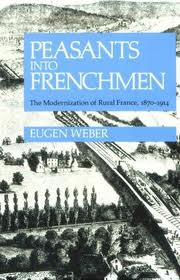I was trained as an agricultural and applied economist, so I have spent a lot of time doing research on risk as it relates to agriculture and development (see here and here for published articles).
Because of this, I have been involved with the annual Economics and Management of Risk in Agriculture and Natural Resources conference for the past few years.
I first presented at that conference in 2009, and since I had then volunteered to organize the conference, I was in charge of the conference program in 2010 and of logistics in 2011.
This year, I was asked to give the keynote lecture, in which I chose to discuss what the “credibility revolution” that took place in economics over the past ten years or so — which has lead to economists to adopting stricter standards of evidence and of statistical identification — means for agricultural and applied economics as a field.
In case you have an interest in this topic, I am making the slides of my keynote lecture are available. I think the content of those slides is especially relevant for current graduate students of agricultural and applied economics.
The Economics and Management of Risk in Agriculture and Natural Resources conference is usually held somewhere on the Gulf Coast. This year, it was held in Pensacola, FL. I took the picture on top of this post while walking along the beach early Saturday morning.

